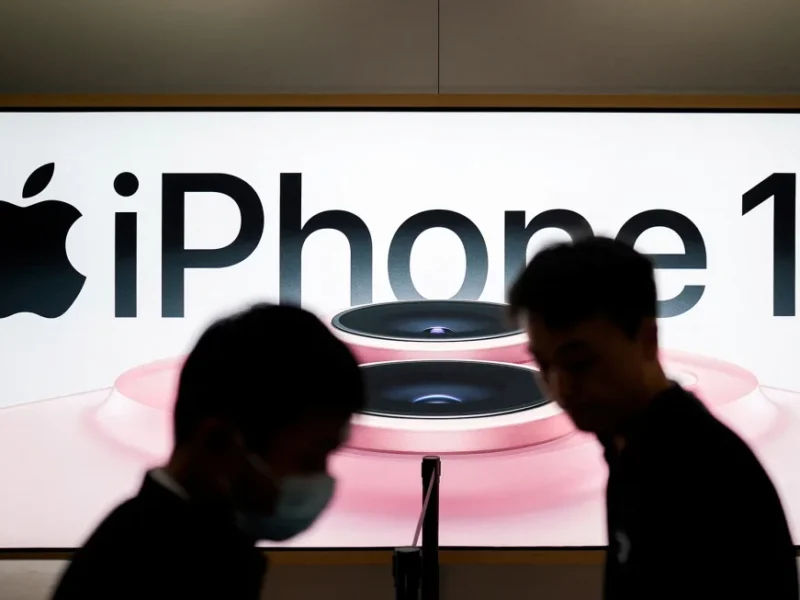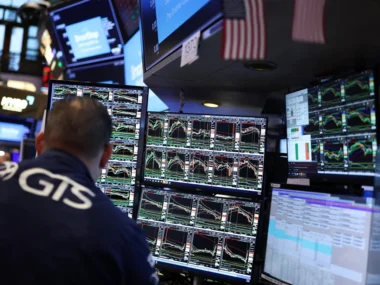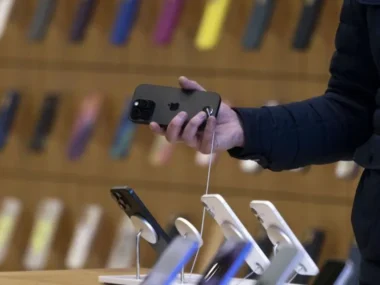Apple experienced a remarkable 10% decline in smartphone sales last quarter, as reported by market research firm IDC. The primary reason for this downturn was a sharp drop in iPhone sales in China.
In recent months, Apple has faced challenges in China due to factors like nationalism, economic difficulties, and heightened competition, leading to a loss of momentum in the region.
Nabila Popal, research director at IDC, noted that while Apple’s decline is significant, the company has demonstrated resilience over the past four years, navigating through supply chain issues and broader economic challenges better than other brands. Samsung, which held the top spot in smartphone manufacturing for 12 years, regained its position in the first quarter of 2024, according to IDC.
Popal highlighted the significance of Samsung’s resurgence, noting that Android, the operating system used by Samsung devices, is expected to grow at twice the rate of iOS this year. This growth is attributed to Android’s recent decline, providing it with more growth opportunities. Neither Apple nor Samsung provided comments on the matter.
Overall, IDC reported a 7.8% year-over-year increase in global smartphone shipments in the first quarter of 2024, signaling a resurgence in the smartphone market after facing macroeconomic challenges for two years. Samsung captured approximately 20.8% of the market share, followed by Apple with 17.3%, and Chinese manufacturer Xiaomi with 14.1%.
In December, Apple briefly surpassed Samsung to become the top performer in the smartphone category, ending Samsung’s 12-year reign at the top, with a 20% market share compared to Samsung’s 19.4%.

Samsung unveiled its latest Galaxy S24 Ultra model smartphones featuring AI capabilities at the Galaxy Unpacked event in San Jose, California, U.S. on January 17, 2024.
Despite IDC’s projection that Apple and Samsung will maintain their dominance in the market, the resurgence of Huawei and other Chinese companies like Xiaomi and OPPO/OnePlus is expected to persist, particularly in China. Chinese consumers, who previously considered Apple, are now shifting towards domestic brands.
China remains a crucial market for Apple, trailing only behind the US in terms of size. To bolster sales, the company continues to offer discounts in China. Last year, Huawei made waves with its Mate 60 smartphone, especially the Pro model, which boasted a sophisticated processor. The US government’s inquiry into the Pro model garnered attention, as it raised questions about Huawei’s capability to develop such advanced technology amidst efforts to restrict China’s access to foreign chip technology due to national security concerns.
Nabila Popal also pointed out that Apple has not effectively communicated its stance on artificial intelligence (AI), unlike many other tech companies that are emphasizing AI-related strategies and features. She expressed hope that Apple would address this during its June developer conference, suggesting that doing so could generate more interest among consumers, given the challenges Apple has faced.
In contrast, Samsung has already made significant investments in AI. With its latest flagship Galaxy S24 lineup, announced in January, the company highlighted the integration of AI advancements into messaging, photos, and gaming. Popal believes that as the smartphone market rebounds this year, with a strong emphasis on AI, Samsung is well-positioned for further growth.











